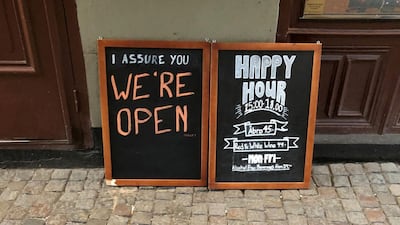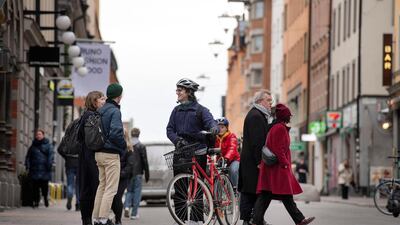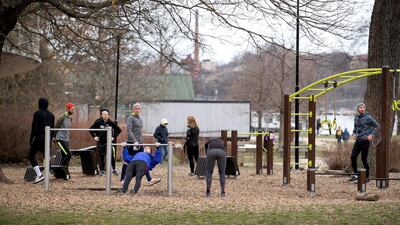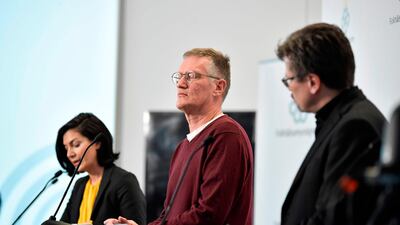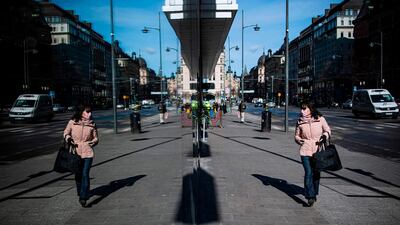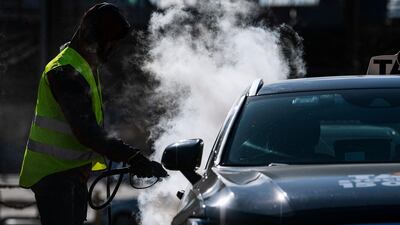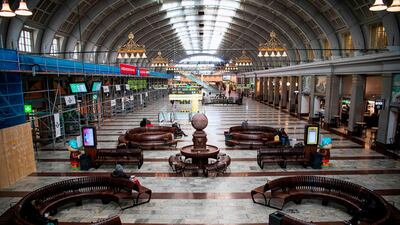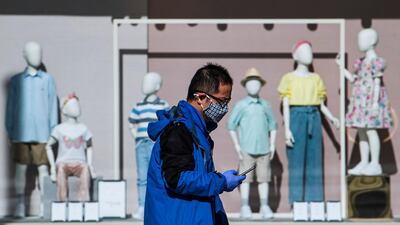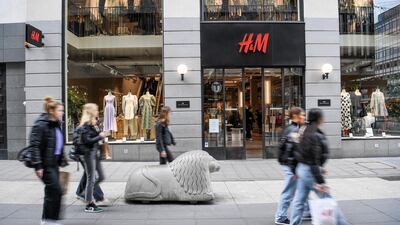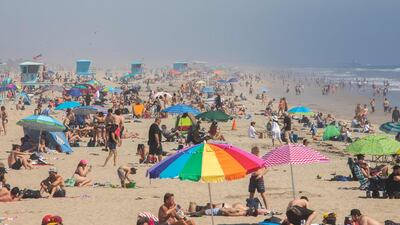As parts of Europe and North America come out of lockdown, there has been plenty of debate about which countries have been tackling the pandemic in the best manner – with a particular focus on Sweden, which stands out for its more relaxed approach. But a far better comparison is with states in the Asia-Pacific, many of which had to deal with the virus earlier and have, by and large, managed to contain it far more successfully than most.
The death toll in Sweden, after all, has now passed 2,000 in a country of 10 million. In the UK, over 20,000 have died out of a population of 67 million, while the figures for the US are 55,000 out of 328 million.
Look east and the contrast is stark. There have been only 243 deaths in South Korea (population 52 million), 99 in Malaysia (population 33 million), and a mere 19 in New Zealand (population five million).
We cannot be certain how accurate any of these numbers are; the demographics, and hence the risk of fatalities, vary from country to country; and I have not mentioned infection rates. But as China announces that it has no remaining coronavirus hospital patients in Wuhan, the centre of the virus, and the city comes back to life; and as investors are reported to be "flocking" to South Korea, it is obvious that those two countries – and many of their neighbours – have been doing something right.
Taking the cases of China and South Korea is instructive, because they did not adopt the same approach: China locked down Wuhan and other cities in Hubei province in January with a brutal totality that seemed unconscionable to the outside world – until many countries followed suit. South Korea, on the other hand, may have closed schools and recommended gyms, clubs and churches do the same, but it flattened the curve, as a government publication puts it, “without enforcing draconian measures that restrict freedom and movement of people”.
Both countries, however, acted swiftly and determinedly. Wuhan was physically cut off from the outside world for 76 days. South Korea tested tens of thousands of people a day, made temperature-taking and hand-sanitising part of daily life, and used mobile technology to keep its highly connected population fully informed, right down to which shops had been visited and when by infected persons. Its citizens followed government advice on social distancing and working from home.
It is countries that have been more easy-going that are in trouble. Japan's Prime Minister Shinzo Abe did not declare a state of emergency until early-April, by which time hospitals were already overwhelmed. Myanmar and Indonesia both denied they had any cases for weeks; the worry now is that the virus may be spreading far and wide in two countries with very limited healthcare facilities.
What explains the success – so far – of the Asia-Pacific countries I mentioned earlier? In south-east and east Asia there is the memory of Sars, which broke out in China in 2002 and later spread to a total of 29 territories. In this part of the world, we are very aware of our proximity to China, so when the coronavirus emerged we knew we would be on the frontline. It is also quite normal to see people wearing masks, whether out of a heightened sense of personal hygiene or to protect against air pollution. Some have argued that east and south-east Asian populations are more likely to comply with government advice, and that may well be true in countries that tend to place the rights of the community over those of the individual.
In the US, Georgia has allowed gyms, hair salons and even tattoo parlours to open for business. But why not, when nearly 40,000 people were reported to have gone to enjoy the sea air in California last Friday?
What unites these countries with faraway New Zealand – to which the above factors do not apply – is, just as with China and South Korea, the measures taken were serious and as complete as they could be. In Malaysia, for instance, we have been under an almost total lockdown for six weeks. It is due to continue for another two, but nobody really expects the Movement Control Order to be lifted until after Eid Al Fitr. That will be nearly 10 weeks during which we cannot leave home at all, except to shop for essentials. Only one person per household is allowed to do so – police have put up roadblocks all over the capital, Kuala Lumpur, and stop any car with more than one person inside.
The order is vigorously enforced – around 20,000 people have been arrested for violations so far, and a deputy minister has been fined 1,000 Ringgit (nearly Dh850) for breaking the MCO – even private gyms and swimming pools are closed, Malaysians are not allowed to leave the country, and any returning must be quarantined in a hotel for two weeks. Life as we know it has changed utterly.
We view with bemusement, then, the half-in, half-out stance that has been taken by the authorities in the US and UK, in particular. Those two countries have taken sufficient measures to cause economic devastation and throw millions out of work, but their actions on social distancing have been so inconsistent that it makes a nonsense of the claim that it was necessary to shut down businesses.
Earlier this month, hundreds of people crammed onto a bridge in London to applaud health workers. They included the UK's police chief, Cressida Dick, whose job was to order them to disperse. She joined in instead. Around 10,000 people are still arriving in the country every day, and then wandering off, unscreened and untraced. Some underground trains were for a time packed, while joggers and cyclists continue to roam apparently unhindered.
In the US, the Governor of Georgia has allowed gyms, hair salons and even tattoo parlours to open for business. But why not, when nearly 40,000 people were reported to have gone to enjoy the sea air at Newport Beach in southern California last Friday?
Look again at the numbers of deaths I quoted above, and the lesson appears to be simple. It is summed up in a phrase most of us were taught as young children: if something is worth doing, it is worth doing properly. Yes, I would love to go for a swim, and I long to be able to join friends for satay from a roadside stall again. But I cannot, or not for a while anyway. And maybe that is why only 99 people have died from the coronavirus in Malaysia so far, as opposed to 20,000 in freedom-loving Britain.
Sholto Byrnes is a commentator and consultant in Kuala Lumpur and a corresponding fellow of the Erasmus Forum
How they line up for Sunday's Australian Grand Prix
1 Lewis Hamilton, Mercedes
2 Kimi Raikkonen, Ferrari
3 Sebastian Vettel, Ferrari
4 Max Verstappen, Red Bull
5 Kevin Magnussen, Haas
6 Romain Grosjean, Haas
7 Nico Hulkenberg, Renault
*8 Daniel Ricciardo, Red Bull
9 Carlos Sainz, Renault
10 Valtteri Bottas, Mercedes
11 Fernando Alonso, McLaren
12 Stoffel Vandoorne, McLaren
13 Sergio Perez, Force India
14 Lance Stroll, Williams
15 Esteban Ocon, Force India
16 Brendon Hartley, Toro Rosso
17 Marcus Ericsson, Sauber
18 Charles Leclerc, Sauber
19 Sergey Sirotkin, Williams
20 Pierre Gasly, Toro Rosso
* Daniel Ricciardo qualified fifth but had a three-place grid penalty for speeding in red flag conditions during practice
Closing the loophole on sugary drinks
As The National reported last year, non-fizzy sugared drinks were not covered when the original tax was introduced in 2017. Sports drinks sold in supermarkets were found to contain, on average, 20 grams of sugar per 500ml bottle.
The non-fizzy drink AriZona Iced Tea contains 65 grams of sugar – about 16 teaspoons – per 680ml can. The average can costs about Dh6, which would rise to Dh9.
Drinks such as Starbucks Bottled Mocha Frappuccino contain 31g of sugar in 270ml, while Nescafe Mocha in a can contains 15.6g of sugar in a 240ml can.
Flavoured water, long-life fruit juice concentrates, pre-packaged sweetened coffee drinks fall under the ‘sweetened drink’ category
Not taxed:
Freshly squeezed fruit juices, ground coffee beans, tea leaves and pre-prepared flavoured milkshakes do not come under the ‘sweetened drink’ band.
UAE currency: the story behind the money in your pockets
Specs
Engine: Electric motor generating 54.2kWh (Cooper SE and Aceman SE), 64.6kW (Countryman All4 SE)
Power: 218hp (Cooper and Aceman), 313hp (Countryman)
Torque: 330Nm (Cooper and Aceman), 494Nm (Countryman)
On sale: Now
Price: From Dh158,000 (Cooper), Dh168,000 (Aceman), Dh190,000 (Countryman)
Dark Souls: Remastered
Developer: From Software (remaster by QLOC)
Publisher: Namco Bandai
Price: Dh199
Key facilities
- Olympic-size swimming pool with a split bulkhead for multi-use configurations, including water polo and 50m/25m training lanes
- Premier League-standard football pitch
- 400m Olympic running track
- NBA-spec basketball court with auditorium
- 600-seat auditorium
- Spaces for historical and cultural exploration
- An elevated football field that doubles as a helipad
- Specialist robotics and science laboratories
- AR and VR-enabled learning centres
- Disruption Lab and Research Centre for developing entrepreneurial skills
Killing of Qassem Suleimani
Muslim Council of Elders condemns terrorism on religious sites
The Muslim Council of Elders has strongly condemned the criminal attacks on religious sites in Britain.
It firmly rejected “acts of terrorism, which constitute a flagrant violation of the sanctity of houses of worship”.
“Attacking places of worship is a form of terrorism and extremism that threatens peace and stability within societies,” it said.
The council also warned against the rise of hate speech, racism, extremism and Islamophobia. It urged the international community to join efforts to promote tolerance and peaceful coexistence.
WOMAN AND CHILD
Director: Saeed Roustaee
Starring: Parinaz Izadyar, Payman Maadi
Rating: 4/5
Volvo ES90 Specs
Engine: Electric single motor (96kW), twin motor (106kW) and twin motor performance (106kW)
Power: 333hp, 449hp, 680hp
Torque: 480Nm, 670Nm, 870Nm
On sale: Later in 2025 or early 2026, depending on region
Price: Exact regional pricing TBA
How to apply for a drone permit
- Individuals must register on UAE Drone app or website using their UAE Pass
- Add all their personal details, including name, nationality, passport number, Emiratis ID, email and phone number
- Upload the training certificate from a centre accredited by the GCAA
- Submit their request
What are the regulations?
- Fly it within visual line of sight
- Never over populated areas
- Ensure maximum flying height of 400 feet (122 metres) above ground level is not crossed
- Users must avoid flying over restricted areas listed on the UAE Drone app
- Only fly the drone during the day, and never at night
- Should have a live feed of the drone flight
- Drones must weigh 5 kg or less
If you go
The flights
There are direct flights from Dubai to Sofia with FlyDubai (www.flydubai.com) and Wizz Air (www.wizzair.com), from Dh1,164 and Dh822 return including taxes, respectively.
The trip
Plovdiv is 150km from Sofia, with an hourly bus service taking around 2 hours and costing $16 (Dh58). The Rhodopes can be reached from Sofia in between 2-4hours.
The trip was organised by Bulguides (www.bulguides.com), which organises guided trips throughout Bulgaria. Guiding, accommodation, food and transfers from Plovdiv to the mountains and back costs around 170 USD for a four-day, three-night trip.
How to wear a kandura
Dos
- Wear the right fabric for the right season and occasion
- Always ask for the dress code if you don’t know
- Wear a white kandura, white ghutra / shemagh (headwear) and black shoes for work
- Wear 100 per cent cotton under the kandura as most fabrics are polyester
Don’ts
- Wear hamdania for work, always wear a ghutra and agal
- Buy a kandura only based on how it feels; ask questions about the fabric and understand what you are buying
Our legal columnist
Name: Yousef Al Bahar
Advocate at Al Bahar & Associate Advocates and Legal Consultants, established in 1994
Education: Mr Al Bahar was born in 1979 and graduated in 2008 from the Judicial Institute. He took after his father, who was one of the first Emirati lawyers
APPLE IPAD MINI (A17 PRO)
Display: 21cm Liquid Retina Display, 2266 x 1488, 326ppi, 500 nits
Chip: Apple A17 Pro, 6-core CPU, 5-core GPU, 16-core Neural Engine
Storage: 128/256/512GB
Main camera: 12MP wide, f/1.8, digital zoom up to 5x, Smart HDR 4
Front camera: 12MP ultra-wide, f/2.4, Smart HDR 4, full-HD @ 25/30/60fps
Biometrics: Touch ID, Face ID
Colours: Blue, purple, space grey, starlight
In the box: iPad mini, USB-C cable, 20W USB-C power adapter
Price: From Dh2,099
Other acts on the Jazz Garden bill
Sharrie Williams
The American singer is hugely respected in blues circles due to her passionate vocals and songwriting. Born and raised in Michigan, Williams began recording and touring as a teenage gospel singer. Her career took off with the blues band The Wiseguys. Such was the acclaim of their live shows that they toured throughout Europe and in Africa. As a solo artist, Williams has also collaborated with the likes of the late Dizzy Gillespie, Van Morrison and Mavis Staples.
Lin Rountree
An accomplished smooth jazz artist who blends his chilled approach with R‘n’B. Trained at the Duke Ellington School of the Arts in Washington, DC, Rountree formed his own band in 2004. He has also recorded with the likes of Kem, Dwele and Conya Doss. He comes to Dubai on the back of his new single Pass The Groove, from his forthcoming 2018 album Stronger Still, which may follow his five previous solo albums in cracking the top 10 of the US jazz charts.
Anita Williams
Dubai-based singer Anita Williams will open the night with a set of covers and swing, jazz and blues standards that made her an in-demand singer across the emirate. The Irish singer has been performing in Dubai since 2008 at venues such as MusicHall and Voda Bar. Her Jazz Garden appearance is career highlight as she will use the event to perform the original song Big Blue Eyes, the single from her debut solo album, due for release soon.
Our legal consultants
Name: Hassan Mohsen Elhais
Position: legal consultant with Al Rowaad Advocates and Legal Consultants.
UAE v Gibraltar
What: International friendly
When: 7pm kick off
Where: Rugby Park, Dubai Sports City
Admission: Free
Online: The match will be broadcast live on Dubai Exiles’ Facebook page
UAE squad: Lucas Waddington (Dubai Exiles), Gio Fourie (Exiles), Craig Nutt (Abu Dhabi Harlequins), Phil Brady (Harlequins), Daniel Perry (Dubai Hurricanes), Esekaia Dranibota (Harlequins), Matt Mills (Exiles), Jaen Botes (Exiles), Kristian Stinson (Exiles), Murray Reason (Abu Dhabi Saracens), Dave Knight (Hurricanes), Ross Samson (Jebel Ali Dragons), DuRandt Gerber (Exiles), Saki Naisau (Dragons), Andrew Powell (Hurricanes), Emosi Vacanau (Harlequins), Niko Volavola (Dragons), Matt Richards (Dragons), Luke Stevenson (Harlequins), Josh Ives (Dubai Sports City Eagles), Sean Stevens (Saracens), Thinus Steyn (Exiles)
